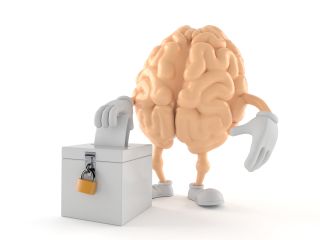Fear
5 Emotional Drivers of Political Beliefs
Explore the connection between emotional needs and political beliefs.
Posted March 19, 2023 Reviewed by Jessica Schrader
Key points
- There is value in exploring the emotional needs that may underlie our clients' political beliefs.
- Exploring these connections can lead to greater self-knowledge and understanding.
- Some of these drivers may include survival instincts, a sense of belonging, or the desire for hope.

The therapy room may not be an ideal forum for debating different political policies, yet it is an opportune space to explore our clients' emotional needs that drive their political beliefs.
What drives someone towards a certain political platform or candidate may not always be verifiable facts, or their education, gender, or occupation, but underlying core emotional needs or triggers that a candidate's political messaging is feeding into.
The more space I create for my clients to listen for, discern, and explore such needs and triggers behind a political conviction, the further they can go in their self-knowledge and understanding. And this is what I tend to hear underlying most impassioned political beliefs.
1. Safety and Struggle for Survival
The first and most potent type of political messaging that cuts right through to one’s soul is an appeal to their most basic instinct for safety, survival, and avoidance of danger.
Appealing to an individual’s fear of losing something intrinsic to them such as security, independence, freedom, or accessibility to resources or superiority is a sure bet for politicians and one that seems quite prolific and pervasive.
Stoking someone’s inner sense of fear and alarm is primal, easy to hook, and is often hard to reason with.
2. Savior From Victimhood
When we are feeling fearful, scared, and victimized, we are most vulnerable. Our vulnerability can serve both as a cue to seek out help from others and it can also cue certain others to prey on that vulnerability for their own gain. When we are most vulnerable, we are functioning mostly from our primal fears and our higher-level function for reasoning and judgment can go offline.
Messaging that frames a candidate as a savior or hero who can swoop in and save us from our worst fears can be intoxicating. We can lose our ability to recognize that political candidates are perfectly imperfect human beings like the rest of us and easily fall for their false promises.
3. Sense of Belonging to a Greater Whole
We are social beings. We are genetically programmed to seek and belong to a collective such as a family, tribe, or community for our survival and enjoyment. Our need to belong is encoded in our cells on a most basic level.
The sense of belonging and connection can be so very powerful, it can result in the release of feel-good neurotransmitters and hormones such as oxytocin, known as the love hormone, and endorphins that help to block pain.
Think of the last time you attended a concert or sporting event of a beloved artist and team and how pumped and enlivened you felt being part of that crowd. Political rallies punctuated with slogans and chants that emphasize attendees' sense of belonging to something bigger than themselves can do the same and serve to cut through the pain of social isolation or alienation.
Political leaders who are able to capitalize on this instinctual need to belong can create social movements that can result in unprecedented seismic and tectonic societal shifts—for better and for worse.
4. Hope, Growth, and Transformation
Hope, growth, and transformation are strongly embedded in the American dream and cultural ethos, and strongly associated with our pursuit of freedom and independence as described in the Declaration of Independence’s “life, liberty and the pursuit of happiness.”
When we are feeling stuck, stagnant, or unsatisfied, political leaders who embody and speak to the need for and capacity to change can be quite electrifying and inspiring, even if they have no real plan or realistic tactics for making such changes.
Connecting with the hope of others and a movement larger than ourselves can be uplifting and prove a temporary cure or substitute for perhaps a deeper sense of powerlessness one may feel over their own individual life.
5. Finding Meaning in Life
Finally, one of our most profound emotional human needs is to find a sense of meaning and purpose in life. We need an anchor and guide in the vast sea of life, which can be difficult, confusing, painful, and flat-out hard. When all seems lost, a sense of meaning and purpose is what can keep us afloat.
For example, Ben Gurion and Winston Churchill were leaders who transformed the dread and suffering of wartime into a call for meaning and purpose in the fight for freedom.
Our modern life, engulfed with isolation and emptiness, is a breeding ground and magnet for political leaders who can hone in on our fear, prey on our vulnerabilities, and manipulate our emotional needs for their own gain and for our votes.
Voters might not even be aware of how much fear they hold, how they long for a savior, or how deeply they are craving a sense of belonging, meaning, and purpose. As their therapists, it's our duty to help them explore and face the parts of themselves that lie dormant inside but are on full view to the political landscape.




